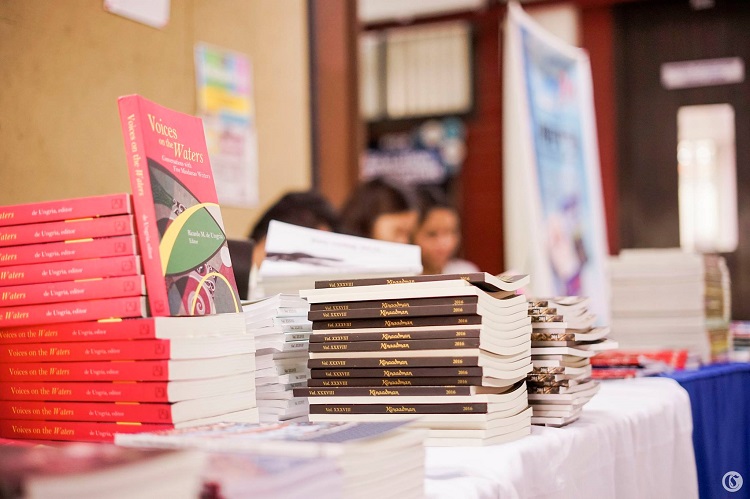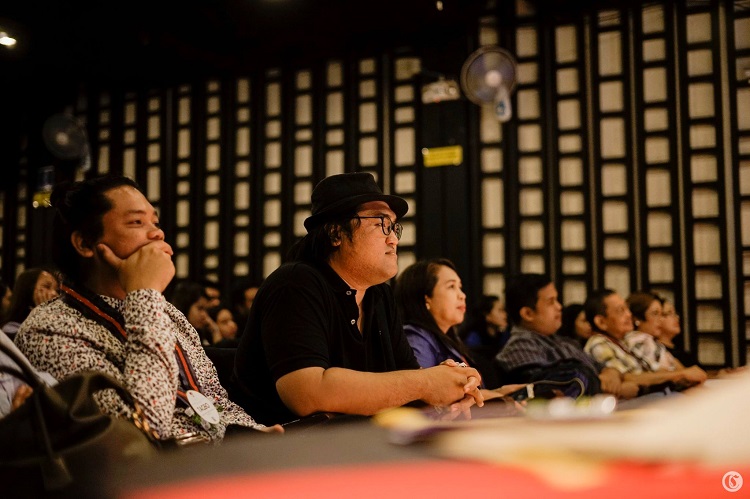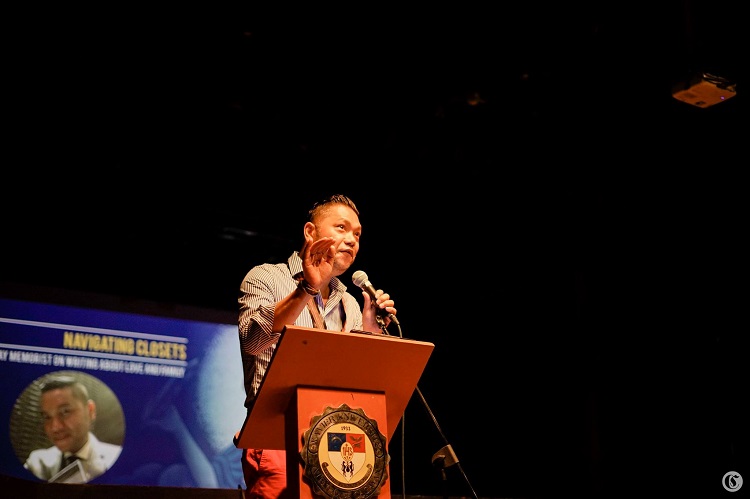
TAGBO FESTIVAL. TAGBO: Readers, Writers, and Publications Festival is a celebration of local literature. Photo by Jinky Mejica of The Crusader Publication.
By Angelo Lorenzo
For storytellers, their hometowns have played a crucial role in paving their narratives, their points of view. Memories become testimonies, imagination weaves into prose, and insights build verses.
To recognize homegrown works, Xavier University Press and the Department of English Language and Literature (DELL) underscored the significance of local literature during the Tagbo: Readers, Writers and Publications Festival.
Tagbo (meaning “encounter or meet-up”) festival provided an avenue to acquaint with and explore the works of writers who hail from various regions across the Philippines. Slated from June 27 to 29, the festival featured a book fair with works published by XU Press, Capitol University Press, Ateneo de Naga Press, and Ateneo de Manila University Press. It also conducted a series of fora and lectures on literature.
Local literature to educate
With a roster of faculty members leading the lectures, as well as writers of multiple genres introducing their published works, the festival shared a common ground – using local literature for educational purposes.
DELL chairwoman Dr Lilia Cotejar emphasized, in her lecture “Tapping Local Books and Resources for the New Curriculum,” that local works should be appreciated not just for the readers’ entertainment, but as learning tools to be integrated into their classes.
April Ramayan, XU Senior High School Outstanding Faculty for 2017, in her lecture “Teaching 21st Century Local Literature in SHS,” shared how “locality” is an important factor in studying and teaching literature.
“We have to give importance to our hometown,” she said in an interview, adding that literature courses should include teaching the works written about the places where the courses are being taught.
She added: “We can use techniques like learner-centered activities. We can also engage in class discussions so our students may see our literature in a different light. It is about time that we highlight our own literature because it is our [people’s] stories.”

TAGBO FESTIVAL. Notable and emerging writers and literary critics, faculty, and students take part in the TAGBO: Readers, Writers, and Publications Festival. Photo by Jinky Mejica of The Crusader Publication.
Emergence of local writers and their readership
Reading may be a hobby for many, and literary works may have always been part of the commercial trend, but local literature still struggles to be read.
In spite of this, TAGBO’s book fair, which spanned for the whole duration of the festival, had displayed, featured, and sold local works. Most of these literary works had been written by the country’s notable and emerging writers and literary critics, and published by university publications.
Books that featured the issues and culture in their localities included: Glenn Diaz’s Carlos Palanca Memorial Award-winning novel “The Quiet Ones” that narrated the economic struggles and romantic pleas of professionals in Metro Manila’s BPO industry; Dumaguete-based writer Ian Casocot Rosales’ stories and poems featuring Baguio and Dumaguete compiled in “Bamboo Girls”; and the newest anthology containing LGBTQ+-themed works by Visayan and Mindanaoan writers in “Libulan: Binisayang Antolohiya sa Katitikang Queer.”
The emergence of these writers has become evident when the festival invited Cagayan de Oro-based poets Mark Anthony Daposala (author of "Basa-basa") and Denver Torres (author of "Hate-eating Birds") to read a few of their poems and sign copies of their published works.
“I told the young people to take care of their body and eat healthy [food],” Torres said after he was asked about his poem, “I Dream of Ants” which was among his reading performances.

NAVIGATING CLOSETS. Arnie Q Mejia, finalist of the 2017 National Book Awards for Nonfiction Prose in English, shares on "Navigating Closets: A Gay Memoirist on Writing about Family" during the third day of the Tagbo festival. Photo by Jinky Mejica of The Crusader Publication.
Universal themes in local setting
Meanwhile, editors of Libulan also led lectures within the theater.
R Joseph Dazo, in his lecture “Drama in Binisaya as Public Performance of Private Identities,” considered issues concerning the LGBTQ+ as “not new” in local literature. His critical essay, which he shared for the purpose of this article, enumerated plays written for the stage by writers based in Luzon, Visayas, and Mindanao, that traced back to the colonial period.
Dazo also encouraged new writers to explore sub-themes that do not perpetuate stereotypes about the LGBTQ+ community.
“The challenge for queer-themed works in the 21st century is to promote its awareness and existence not only on paper but also – in the case of dramas – in the eyes of their viewers and in society,” Dazo concluded.
The people behind Tagbo festival hopes that with the emergence of writers and the advent of new works covering various social issues and themes, a promising chapter awaits our local literature.∎
